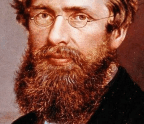

Canteen dining often conjures up negative images. This kind of large-scale eating might seem grindingly institutional, evoking the worst memories of school dinners: the eternal smell of cabbage and the misery of wet trays. Yet during the darkest days of the Second World War and the rationing that continued long afterwards, a thriving national network of government-backed communal eating establishments offered not just good-value, healthy food. These British Restaurants were, on the instruction of the Ministry of Food, “centres of civilisation” –spaces for all classes, overcoming the Victorian notion of the public consumption of food as something solely for the deserving poor.
Established in 1940, British Restaurants were state-subsidised dining rooms offering price-capped, nutritious meals to the public. But the story of wartime communal dining in Britain had actually begun more than two decades earlier, in the latter stages of the First World War.
In 1917 the Ministry of Food had established the National Kitchen – a network of more than 1,000 large state-subsidised canteens that functioned until 1919. One of the scheme's key proponents was the pioneering vegetarian, restaurateur, real tennis Olympic medallist and all-round Edwardian man of action Eustace Miles. Writing in the ministry's 1918 handbook, he had stated: “At some future time it will be difficult to believe that each household in the country did its own separate




